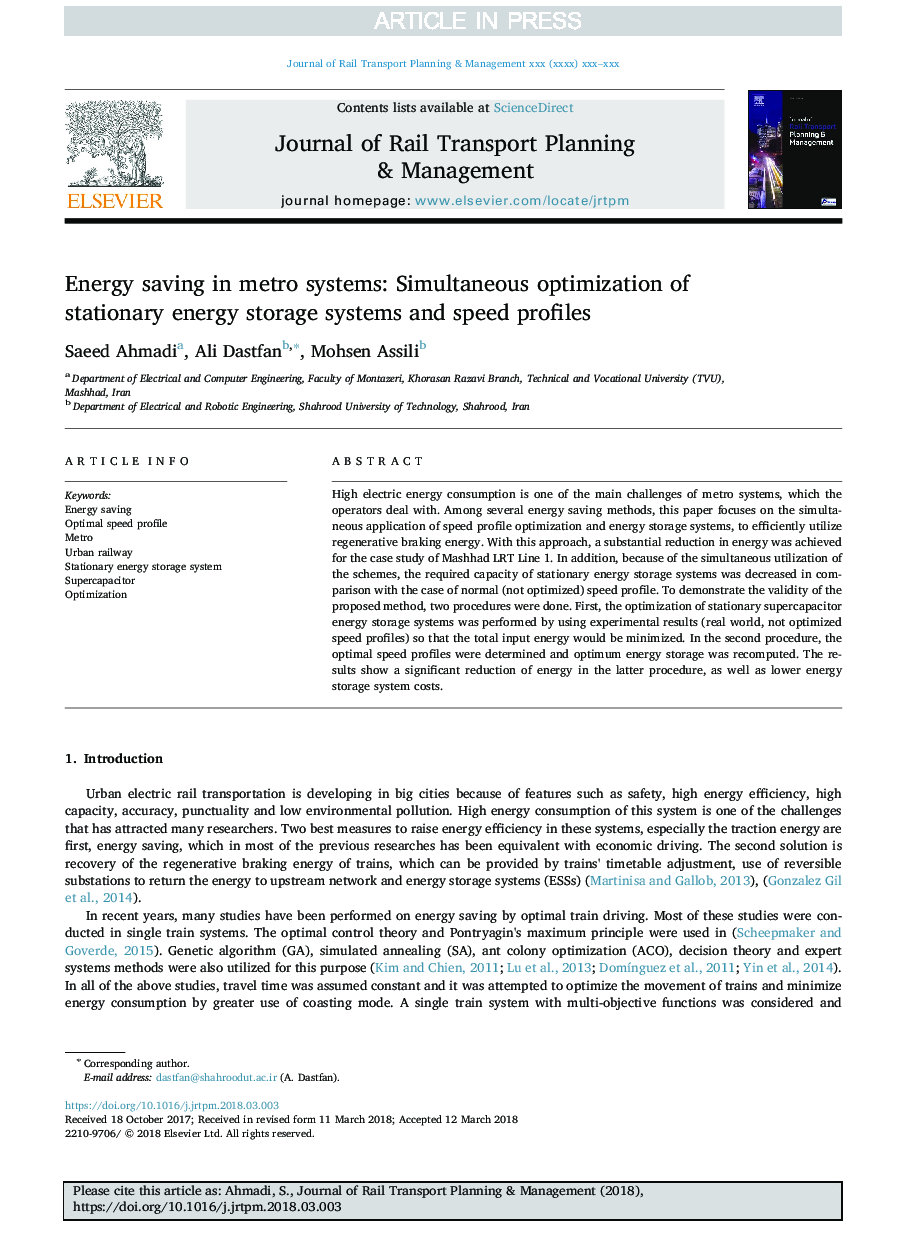| Article ID | Journal | Published Year | Pages | File Type |
|---|---|---|---|---|
| 6751941 | Journal of Rail Transport Planning & Management | 2018 | 13 Pages |
Abstract
High electric energy consumption is one of the main challenges of metro systems, which the operators deal with. Among several energy saving methods, this paper focuses on the simultaneous application of speed profile optimization and energy storage systems, to efficiently utilize regenerative braking energy. With this approach, a substantial reduction in energy was achieved for the case study of Mashhad LRT Line 1. In addition, because of the simultaneous utilization of the schemes, the required capacity of stationary energy storage systems was decreased in comparison with the case of normal (not optimized) speed profile. To demonstrate the validity of the proposed method, two procedures were done. First, the optimization of stationary supercapacitor energy storage systems was performed by using experimental results (real world, not optimized speed profiles) so that the total input energy would be minimized. In the second procedure, the optimal speed profiles were determined and optimum energy storage was recomputed. The results show a significant reduction of energy in the latter procedure, as well as lower energy storage system costs.
Related Topics
Physical Sciences and Engineering
Computer Science
Computer Science Applications
Authors
Saeed Ahmadi, Ali Dastfan, Mohsen Assili,
